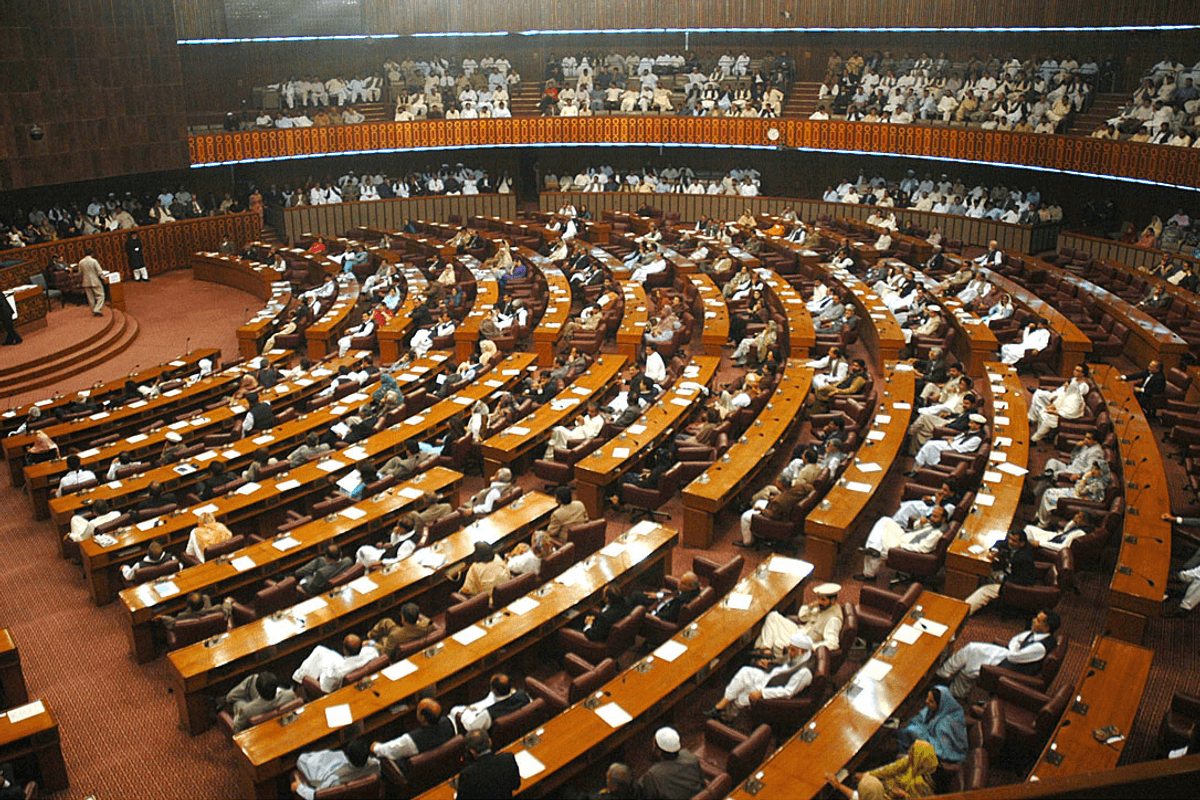Pakistan govt finalizes draft outline for 27th constitutional amendment
PM Shehbaz reviews 27th Amendment draft after coalition consultations; Cabinet to review today before it is sent to Senate

Aamir Abbasi
Editor, Islamabad
Aamir; a journalist with 15 years of experience, working in Newspaper, TV and Digital Media. Worked in Field, covered Big Legal Constitutional and Political Events in Pakistan since 2009 with Pakistan’s Top Media Organizations. Graduate of Quaid I Azam University Islamabad.

National Assembly of Pakistan.
The Pakistani government has finalized the draft framework for the proposed 27th constitutional amendment, which seeks to introduce far-reaching structural, political, and judicial reforms to the country’s constitutional order.
According to informed sources, Prime Minister Shehbaz Sharif has held extensive consultations with coalition partners to secure consensus on the amendment’s key provisions. The draft will be presented for approval at Friday’s Federal Cabinet meeting before being tabled in the Senate for formal introduction.
Key proposals in the 27th Amendment
As per official sources, the proposed amendment envisions replacing the existing constitutional bench of the Supreme Court with a new nine-member Constitutional Court dedicated exclusively to constitutional matters.
The draft also recommends increasing the upper age limit for judges of both the Supreme Court and the new Constitutional Court from 68 to 70 years.
In cases where political parties fail to agree on the appointment of the Chief Election Commissioner (CEC), the matter would be referred to the Supreme Judicial Commission for resolution. Moreover, the powers of the President and Prime Minister in appointing judges to the superior courts would be curtailed, transferring greater authority to the Judicial Commission.
Within the ruling coalition, the Pakistan Peoples Party (PPP) has reportedly expressed reservations over certain clauses granting expanded constitutional powers to local governments. Further consultations are expected before the amendment’s text is finalized.
Major constitutional changes proposed
The draft amendment also proposes changes to Article 243 of the Constitution to grant constitutional protection to the office of Field Marshal, institutionalizing it as a permanent, constitutionally empowered title with defined authority and lifetime status.
Additionally, the draft suggests a revision of the National Finance Commission (NFC) Award formula, under which the federal government’s share from provincial allocations would be increased by 10 percent.
Another key proposal seeks to restore education and health to the federal jurisdiction, subject to consensus among the provinces - a move seen as partially reversing aspects of the 18th Amendment’s devolution of powers.
Background
The 27th constitutional amendment is being described as one of Pakistan’s most comprehensive constitutional reform efforts since the 18th Amendment of 2010, which significantly expanded provincial autonomy.
While the earlier reform was lauded for strengthening the federation through decentralization, the new proposals appear to signal a shift toward re-centralization, particularly in key policy areas such as education, healthcare, and fiscal management.
Political observers note that the inclusion of a Field Marshal’s constitutional role and the creation of a separate Constitutional Court could fundamentally reshape Pakistan’s institutional balance of power, with potential implications for civil-military relations and the judiciary’s internal structure.
If approved by the cabinet and subsequently passed by both houses of Parliament with the required two-thirds majority, the 27th Constitutional Amendment would mark a major reconfiguration of Pakistan’s governance framework and redefine the contours of constitutional authority in the country.







Comments
See what people are discussing